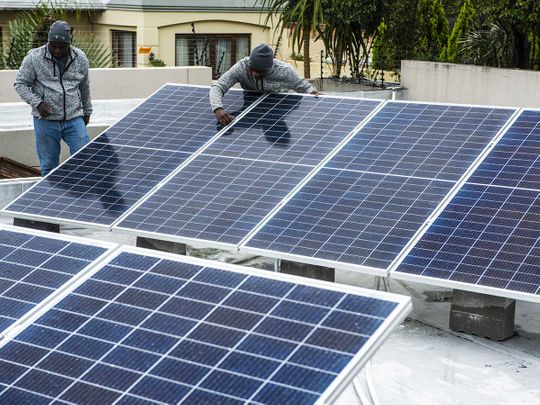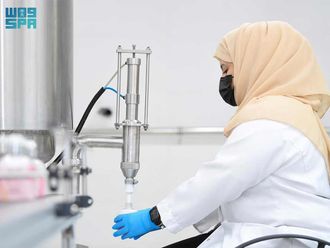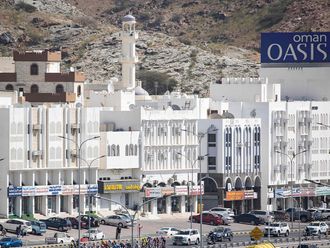
The UAE has ranked highest among GCC economies and 12th overall in a new index that focuses on how countries are currently managing their energy and emissions, and how they are positioned to progress toward circular carbon, or net-zero, economies.
In the first edition of the Circular Carbon Economy Index, the GCC countries rank from 12th to 27th out of 30 countries. Norway, the UK and Germany lead the rankings. Saudi Arabia ranks 15th, while Qatar is 16th on the index. Kuwait is placed 20th, and Oman is 27th. Iraq, Nigeria and Algeria wrap up the bottom three.
Joint cooperation
While Gulf economies have set individual targets to cut down on emissions, there are also several opportunities for the countries to cooperate for joint emission targets, a study based on the index said on Monday.
Carbon capture, utilisation and storage could be one such initiative, along with hydrogen exports, the study titled “The Gulf Cooperation Council and the Circular Carbon Economy: Progress and Potential” said.
Released by the King Abdullah Petroleum Studies and Research Center (KAPSARC), the study comes at a time when efforts are on to align economic growth and prosperity with globally agreed climate goals in the region. The next two major United Nations climate summits, COP 27 and COP 28, will be held in Sharm El Sheikh and Abu Dhabi, respectively.
The CCE index
The index comprises 47 indicators that measure different areas of energy, emissions and the economy. It was developed for use by energy and climate policymakers and stakeholders to quantify and compare countries’ current performances on various circular carbon economy (CCE) metrics and their future potential.
Over the past year, all six GCC countries have updated their medium-term greenhouse gas emission targets by submitting revised Nationally Determined Contributions under the Paris Agreement, the report said. Saudi Arabia, the UAE and Bahrain have also announced mid-century net-zero emission targets, the report added.
The index also suggests that although as a group the GCC countries outperform their non-OECD peers and neighbours in the Middle East and North Africa region in most areas measured, they should undertake further efforts if they wish to improve their overall rankings in the global CCE index.
Mari Luomi, a fellow in KAPSARC’s Climate and Sustainability program and a co-author of the paper, pointed out that using the circular carbon economy concept can help all countries to become more ambitious in their climate targets and targeted action because it broadens the scope of available technology options. In the Gulf region, the circular carbon economy can help foster buy-ins from many industries that have limited cost-effective options to decarbonize without using fossil fuels.
Fatih Yilmaz, another co-author of the paper, noted that in the area of finance, a key enabler of circular carbon economies, the GCC countries’ average is higher than their non-industrialised peers, but lower than those of the world’s top 20 oil producers.
Thamir Alshehri, the third co-author, noted that Saudi Arabia achieves higher scores than other hydrocarbon producers on various indicators relating to the oil and gas sector’s emissions performance, indicating that Saudi Arabian hydrocarbon exports will have a competitive edge as the country pursues full circularity, or net-zero emissions.












